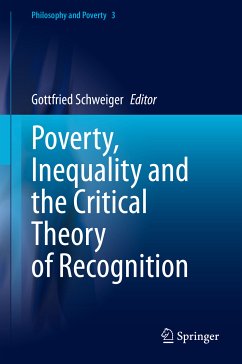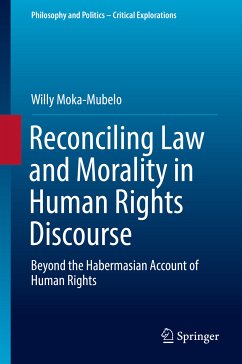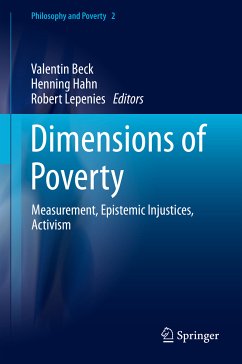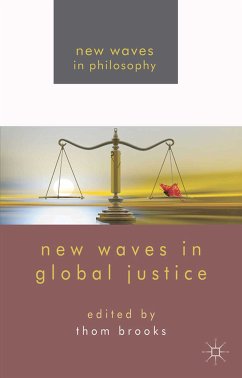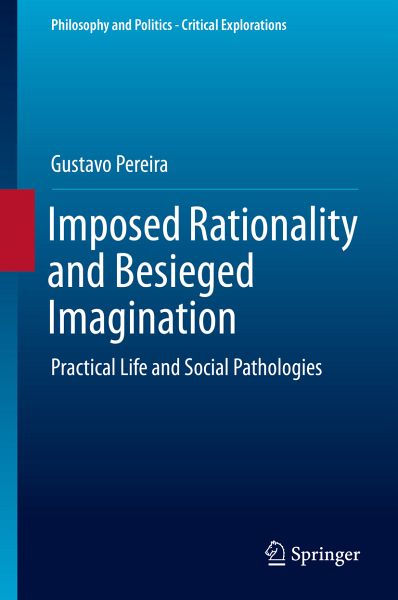
Imposed Rationality and Besieged Imagination (eBook, PDF)
Practical Life and Social Pathologies
Versandkostenfrei!
Sofort per Download lieferbar
40,95 €
inkl. MwSt.
Weitere Ausgaben:

PAYBACK Punkte
20 °P sammeln!
Social pathologies are social processes that hinder how individuals exercise their autonomy and freedom. In this book, Gustavo Pereira offers an account of such phenomena by defining them as a cognitive failure that affects the practical imagination, thus negatively interfering with our practical life. This failure of the imagination is the consequence of the imposition of a type of practical rationality on a practical context alien to it, caused by a non-conscious transformation of the individuals' set of beliefs and values. The research undertaken provides an innovative explanation in terms ...
Social pathologies are social processes that hinder how individuals exercise their autonomy and freedom. In this book, Gustavo Pereira offers an account of such phenomena by defining them as a cognitive failure that affects the practical imagination, thus negatively interfering with our practical life. This failure of the imagination is the consequence of the imposition of a type of practical rationality on a practical context alien to it, caused by a non-conscious transformation of the individuals' set of beliefs and values. The research undertaken provides an innovative explanation in terms of microfoundations based on the mechanism of "availability heuristic", by which the diminished exercise of the imagination turns the intuitively available or prevailing rationality into the one that regulates behaviour in inappropriate contexts. Additionally, this incorrect regulation results in a progressive distortion of the shared sense of the affected practical contexts, which becomes institutionalized.
Consumerism, bureaucratism, moralism, juridification, some forms of corruption and the particular Latin American case of "malinchism" can be interpreted as social pathologies insofar as they imply such distortion. This way of conceptualizing social pathologies integrates the traditional sociological macro-explanation manifested through the negative consequences of the processes of social rationalization with a micro-explanation articulated around the findings of cognitive psychology such as availability heuristic.
Understanding social pathologies as a cognitive failure allows us to identify the introduction of normative friction as the main way to counteract their effects. One of the potential effects of normative friction, as a specific form of cognitive dissonance, is the intense exercise of the imagination, thus operating as a condition of possibility for the exercise of autonomy and reflection. Democratic ethical life, understood as a shared democraticculture, as well as social institutions and narratives, are the privileged social spaces and means to trigger reflective processes that can counteract social pathologies through a reflective reappropriation of the meaning of the shared practical context.
An extraordinary contribution by a Critical Theorist to the return of the concept of imagination today. It takes up the challenge once taken by Kant to think about imagination as the pivotal activity not only of knowledge and experience, but above all, for action. The author claims that imagination makes criticism possible (pathologies) and it allows us to envision alternative views into the path for social transformation. Without imagination nothing is possible.
María Pía Lara, Universidad Autónoma Metropolitana-Iztapalapa, Mexico
Consumerism, bureaucratism, moralism, juridification, some forms of corruption and the particular Latin American case of "malinchism" can be interpreted as social pathologies insofar as they imply such distortion. This way of conceptualizing social pathologies integrates the traditional sociological macro-explanation manifested through the negative consequences of the processes of social rationalization with a micro-explanation articulated around the findings of cognitive psychology such as availability heuristic.
Understanding social pathologies as a cognitive failure allows us to identify the introduction of normative friction as the main way to counteract their effects. One of the potential effects of normative friction, as a specific form of cognitive dissonance, is the intense exercise of the imagination, thus operating as a condition of possibility for the exercise of autonomy and reflection. Democratic ethical life, understood as a shared democraticculture, as well as social institutions and narratives, are the privileged social spaces and means to trigger reflective processes that can counteract social pathologies through a reflective reappropriation of the meaning of the shared practical context.
An extraordinary contribution by a Critical Theorist to the return of the concept of imagination today. It takes up the challenge once taken by Kant to think about imagination as the pivotal activity not only of knowledge and experience, but above all, for action. The author claims that imagination makes criticism possible (pathologies) and it allows us to envision alternative views into the path for social transformation. Without imagination nothing is possible.
María Pía Lara, Universidad Autónoma Metropolitana-Iztapalapa, Mexico
Dieser Download kann aus rechtlichen Gründen nur mit Rechnungsadresse in A, B, BG, CY, CZ, D, DK, EW, E, FIN, F, GR, HR, H, IRL, I, LT, L, LR, M, NL, PL, P, R, S, SLO, SK ausgeliefert werden.






